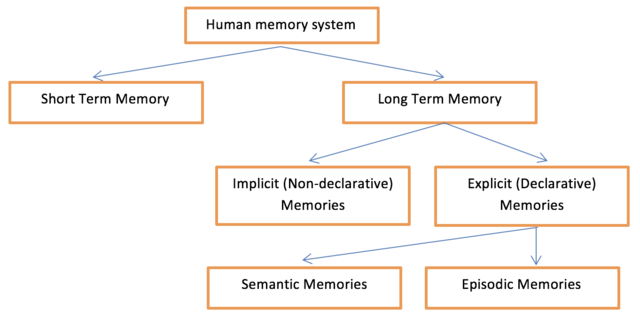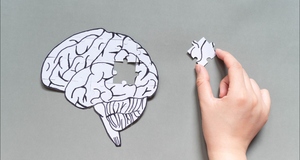Bilingual Episodic Memory and Eye-Witness Testimony
By
2017, Vol. 9 No. 02 | pg. 1/2 | »
IN THIS ARTICLE
AbstractThe human memory system comprises multiple components. The focus of this paper is on the encoding and decoding process of episodic memories. Events that catch the attention of individuals either consciously or sub-consciously are stored in a particular sequence, which constitute episodic memories. The storage of these memories is dependent on a variety of factors such as attention paid to the event, ambient surroundings, and the significance of the event for the individual. Language plays a crucial role in the encoding/decoding process of episodic memories. Multiple research studies have explored the relationship between bilingualism (the ability to speak two languages) and episodic memory formation. The linguistic context present at the time of encoding influences the ease and accuracy in the retrieval of the memory. The objective of this paper is to summarize the current findings in the field of bilingualism and episodic memory; to examine the presence and findings of research conducted that prove or disprove the accuracy of episodic memory in eye-witness testimony of bilingual witnesses in a court of law. The conclusions (or lack of them) could be construed as a potential area for further research. Memory is the process of retaining, retrieving and using information about stimuli, images, events, ideas and skills after the original information is no longer present (Goldstein, 2011). The human memory system comprises multiple components that work in tandem to form, store, access, and process memories. Multiple studies have been conducted that prove the evolutionary benefits that the memory system confers to the human race. We tend to retain only that information that may provide us with a survival advantage (Nairne, Pandeirada, Gregory, & Arsdall, 2009). The Human Memory System
Short term memories are information-maintenance systems that partially control access and encoding to long-term memory. Long term memories are stable representations of knowledge that is acquired over time. This includes the implicit- non-declarative memories and explicit- declarative memories gained for facts, events, skills, routines and associations made by individuals on an everyday basis (Bartolotti & Marian, 2012). Non-declarative memory consists of all the information that is already intrinsically a part of the individual, such as habits and skills, conditioned stimulus responses, non-associative learning, and priming (Baddeley, 2001). This form of memory is observable through change in behaviour and performance over time in response to the acquisition of knowledge and skills (Bartolotti & Marian, 2012). Declarative memory consists of the information that the brain obtains from the outside environment. This information gets stored in one of two memory systems: semantic and episodic. This memory system can be consciously demonstrated through verbal recounting in response to queries (Bartolotti & Marian, 2012). Semantic memory is comprised of generic facts and knowledge about everyday happenings, such as the colour of a banana, or the capital city of their country. Individuals generally have this knowledge because of their constant experiences with it, or because of exposure to it in some form or the other which gets stored in the brain as ‘facts of life’ (Baddeley, 2001). The concept of episodic memories was proposed a little over 40 years ago. Episodic memory contains records of unique events which occurred at particular times (MacLeod, 1976). The episodic memory is accessed to answer questions like “what did you have for breakfast yesterday?” or “How was the opening ceremony of the Olympics in 2008 in Beijing?” (Baddeley, 2001). Episodic memories are heavily dependent on semantic memories for formation. However, Tulving postulated that there are three features that distinguish episodic memories from semantic and auto-biographical memories: the self, subjective time and an autonoetic consciousness. Memories can be accessed only by an individual with the ability to comprehend the concept of time. Episodic memories break the linearity of time, because the individual accessing them is reliving a time that is not the present. An awareness of this leads to the formation of an autonoetic consciousness (Tulving, 2002). The significance of these three factors will be elaborated upon later in this paper. Encoding and Retrieval of Episodic MemoriesOne of the most important aspects of memories, especially in the context of episodic memories, is the way that they are encoded and subsequently retrieved. The perception of any event involves a rapid analysis of stimuli at multiple levels (Craik & Lockhart, 1972). Disciplines within behaviour analysis, neuroimaging and neuropsychology suggest that episodic memories are constructed due to the interactions among vision, audition, olfaction, tactile senses, spatial imagery, language, emotion, narrative, and explicit memory (Rubin, 2006). The preliminary stages of analysis of any event are restricted to the analysis of physical or sensory features and characteristics such as lines, angles, brightness, pitch etc.; the later stages are concerned with matching up the event to pre-existing knowledge in the brain, and pattern recognition along with the extraction of meaning from the situation (Craik & Lockhart, 1972). The perception of the event is the deterministic key to the encoding process. Humans are prone to pay selective attention to the aspects of an event that they perceive as being relevant, and ignore the rest (Odinot, 2008). The amount of attention paid to details, and the perceived centrality of the event determine the episodic memory that consequently gets formed. The different aspects of an event are initially processed by the frontal lobe and the different cortical areas that are responsible for the processing of sensory information. Further processing is taken up by the hippocampus and the medial temporal lobe. A cohesive whole memory that is extracted from the different bits and pieces of the processed fragments is then created (Schroeder & Marian). The hippocampus is responsible for the retrieval of memories after they have been encoded (Suddendorf, Addis, & Corballis, 2009). The events that get activated depend largely on the external cues and the context that is present at that point in time. This is because external cues and internal factors such as the state of mind of the individual at that point of time also get encoded as part of the memory. In the event of the recurrence of these specific or similar factors at a later stage, certain aspects of the memory get triggered through a phenomenon known as context dependent memory. The process of pattern completion brings the entire, consolidated memory to the fore. The processes of memory cueing and pattern completion work in tandem with the executive control functions of the frontal lobe (Schroeder & Marian). The Role of Language in Episodic MemoriesEvery memory has a narrative associated with it. A narrative is a series of temporally occurring events that have a perceived thematic coherence. This narrative is almost always represented through internal speech, which is conducted through a particular language. The structure, syntax and grammar of the language as well as the cultural implications that every language invariably has, influences the way that the memory gets encoded. Thus, different languages can foster different realities. Additionally, the understanding of a situation is partially dependent on the language used for processing and encoding (Rubin, 2006). Every memory is associated with perceptual processing. These levels of perceptual processing – sensory analysis, pattern recognition and stimulus elaboration are deeply influenced by the language cues which consequently determine the way that the memory gets encoded and retrieved (Craik & Lockhart, 1972). Language is a pervasive part of life. It shapes our thought processes, perceptions, attitudes, opinions, cultural orientations, and, as established earlier, memory processing, encoding and retrieval. Thus language can be seen as an influencing factor on everything we do. The three factors that distinguish episodic memories from the rest become relevant here. The development of language and the subsequent syntax allowed for the expression of time as the past, present and the future. It allows for answers to questions of what, where and when outside of the present tense (Suddendorf, Addis, & Corballis, 2009). Bilingualism and Episodic MemoriesBilingualism is the ability to speak two languages. The pre-frontal cortex, inferior parietal cortex and basal ganglia are responsible for switching between the two languages in bilingual individuals. One of the most important outcomes of bilingualism is the social, cultural and cognitive influences that the two different languages have on the individual (Bialystok, Craik, Green, & Gollan, 2009). In the context of episodic memories, language is present in all situations, whether verbal or not, through the internal self-talk that is present in every individual. The phonetics and syntax help individuals encode and decode ideas and situations which are stored in non-linguistic forms (Rubin, 2006). Thus, even non-verbal memories are reported through the medium of language (Schroeder & Marian). The successful acquisition of a language involves the storage of semantics, syntax, grammatical rules, the cultural connotations that every language possesses and the ability to use the language to establish a coherent thought process that may or may not manifest itself verbally. In bilingualism, this process is slightly more complicated because of the presence of two distinct systems that need to be accounted for and incorporated into everyday use in accordance with changing linguistic contexts (Bartolotti & Marian, 2012). Thus, for bilinguals, memory encoding and retrieval can happen in either one language or both languages, depending on individual proficiency and propensity to use the language (Schroeder & Marian). Research has found that bilinguals do not possess two distinct working memory systems, but possess one that integrates both the languages in a processing compromise. This implies that the process of encoding and retrieval differs qualitatively in monolinguals and bilinguals (Bartolotti & Marian, 2012). Knowledge/events that get encoded into bilingual brains can be classified into two kinds: univalent and bi/multi-valent. Univalent information is that which gets encoded in only one of the two languages known by the bilingual individual. Bi/multi-valent information is that which can get stored in either of the two languages known by the bilingual. This form of coding is very context-dependent (Marian & Kaushanskaya, 2007). However, there is the danger of interference from either of the two languages, which could negatively influence memory encoding and retrieval. This is mitigated by the executive control processes that suppress interference from one language when using the other language (Schroeder & Marian). Episodic Memories and Eye-Witness TestimoniesThe relationship between bilingualism and episodic memory has multiple implications in the every-day world. One of these is the effect it has on eye-witness testimony. Eye-witness testimony is one of the crucial methods used in apprehending criminals or proving the innocence of men. Hugo Münsterberg was one of the leading psychologists around the turn of the 20th century. He was deeply interested in the psychological aspect of eye-witness testimony, and remained unconvinced about the process of convicting/ letting go individuals on the basis of purely eye-witness testimony due to certain questionable decisions made around the years 1905-1908. With the advent of forensic hypnosis, impaired memories could be almost completely restored with close to complete accuracy. This started to replace eye-witness testimony, with multiple case decisions made purely on the basis of the memories recalled through forensic hypnosis. Individuals were sentenced or let go on the basis of these reconstructed memories, with no consideration given to the possibility of the manufacturing of false testimonies. The work of notable cognitive psychologists like Elizabeth Loftus established memories as unstable recordings of the past that were continually refreshed and revised over time. Supplemented by the work of social psychologists, who were developing models of suggestion based understanding of human interactions, the very idea of the reliability of eye-witness testimonies (even through forensic hypnosis). was implicitly challenged. Over the next few years, forensic hypnosis underwent heavy scientific scrutiny, and was eventually declared an unreliable method of establishing the truth. The belief that human memories are reconstructions of past events which have the potential to be false or flawed found more and more support from psychologists as well as legal professionals and entities (Winter, 2007). The testimony of eye-witnesses is based almost entirely on the episodic memories encoded for the event that they witnessed. As has been established, individuals selectively interpret and encode what they witness based on prior semantic knowledge and social, cultural and individual perceptions. Due to the nature of the formation of episodic memories, the formation of flawed, or even false memories is a very high possibility (Odinot, 2008). There is a direct relationship between the amounts of attention paid to the event, the specific aspects that are paid attention to, and the accuracy of the memory (Schroeder & Marian). The fallibility of episodic memories raises questions about methods for distinction between accurate and inaccurate memories, and more importantly, the validity of eye-witness testimony as a whole. This is because even in cases of great personal significance, there is the formation of a ‘flashbulb memory’, which is temporary, and is subject to change just as much as memories or events that are not considered as important (Odinot, 2008). Suggestive questioning is another great threat to the accuracy of episodic memories. The malleable nature of episodic memories could lead to the formation of flawed or even false memories through the process of suggestive questioning (Odinot, Wolters, & A.E., 2006). The time period between encoding and retrieval too, is important. The greater the time period between encoding and questioning, the greater is the possibility of the formation and narration of flawed or false memories. This could have negative implications in sensitive court testimonies. Repeated questioning too, has been known to lead to memory distortions (Odinot, 2008). Another factor that needs to be taken into account when considering eye-witness testimonies as a source of evidence in court proceedings is the age, gender and cultural background of individuals. These have great implications due to the influence that they have on the perceptions of individuals. Additionally, memory and memory formation declines with age (Schroeder & Marian).Continued on Next Page » Suggested Reading from Inquiries Journal
Inquiries Journal provides undergraduate and graduate students around the world a platform for the wide dissemination of academic work over a range of core disciplines. Representing the work of students from hundreds of institutions around the globe, Inquiries Journal's large database of academic articles is completely free. Learn more | Blog | Submit Latest in Psychology |


















